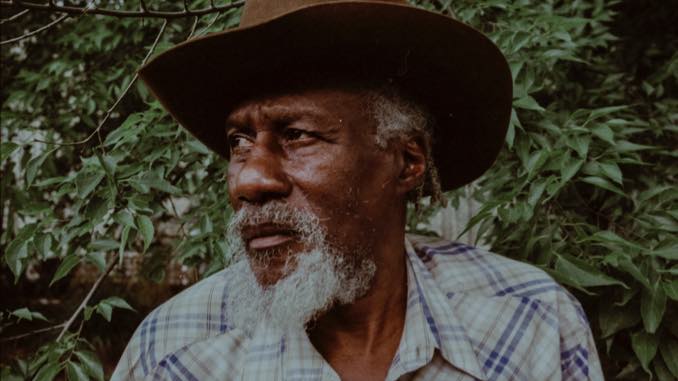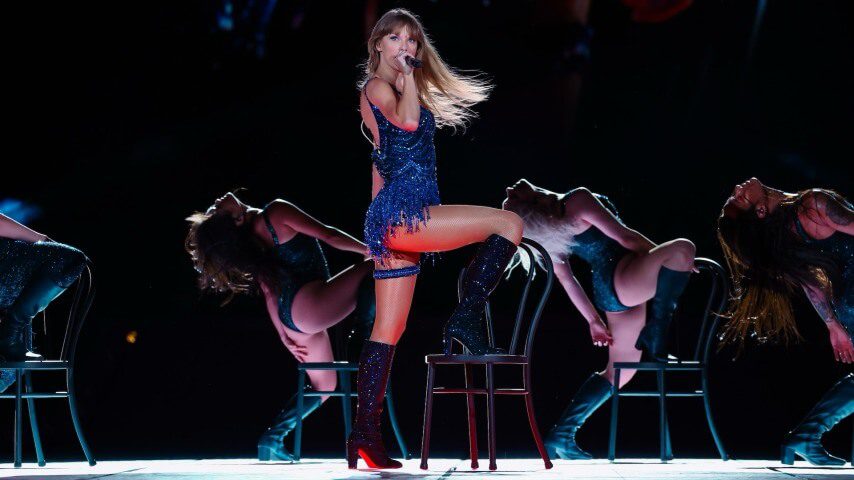There are few modern artists who have followed the karmic pay-it-forward rule better than Black Keys frontman Dan Auerbach. As soon as the duo went on a recent hiatus, he reinvested his earnings in his own label and Nashville recording studio—both dubbed Easy Eye—and put his retro-keen ears to work inking and producing promising acts both old and young, like a Roy Orbison-evocative Dee White, the soulful British diva Yola, and Shannon Shaw from Shannon & The Clams, whom he repositioned as a ’60s-stylish country thrush. With every move he makes, the benevolent auteur is celebrating not only the traditional music he grew up loving, but also its infinite future possibilities. So when he dubs his 67-year-old signing Robert Finley “the greatest living soul singer,” he’s not whistling “Dixie”—it’s a fair and carefully studied assessment, and praise that’s not given lightly.
It’s why Auerbach brought Finley into the Easy Eye fold with the Louisiana native’s Goin’ Platinum, an old-school R&B record that he helmed in 2017. Naturally, he kept the partnership going by producing his protege’s autobiographical new Sharecropper’s Son, too, and tapping into his roots in soul (“Country Boy’’), roadhouse blues (“Country Child,” “Souled Out on You”), chapel-hushed Gospel (“All My Hope”), and even a CCR-ish chooglin’ oomph on “Make Me Feel Alright.” Finley happens to write most of his material, which dovetails nicely with Auerbach’s laissez-faire, Chips-Moman-inspired studio approach—he’s carefully assembled a crack team of Nashville session vets, such as keyboardist Bobby Wood, drummer Gene Chrisman and guitarist Billy Sanford, and if the singer doesn’t have the songs, he’ll co-write with them until they do. But if they’ve got the goods—like Finley—the team can knock out an Easy Eye album in an efficient week.
Auerbach came across Finley’s trademark rich, sandpapery growl on his late-in-life debut disc from 2016, Age Don’t Mean a Thing; It had been released on the Mississippi-based, Fat Possum-distributed Big Legal Mess Records, home to a remarkable roster of rootsy artists like Jimbo Mathus, who co-produced it. “I did that album in Memphis, and I think Dan heard it and decided to reach out to me,” recalls Finley, who, indeed, was born an actual sharecropper’s son in Bernice, Louisiana. “And Dan used to be on Fat Possum when he started out, so he and the label folks already knew each other. But when I got to talk to Dan for the first time, I actually met him at his Nashville studio.” Which was where the Black Key made him an unusual offer—how would he like to provide vocals on a companion soundtrack to his graphic novel, Murder Ballads? Finley, who still refers to the Z2 Comics publication as a “comic book,” was confused at first, but agreed.
“Dan had written about four songs that he wanted me to do the vocals on for that comic book,” says Finley. “And I think we had four days to do the recording for that comic book, but we did it in three or four hours, so it was like, ‘Damn! This was meant to happen!’ So we just started working together, and I came back home and wrote the album Goin’ Platinum, and then I wrote the one we’re promoting now.” He felt compelled to finally relate his surreal life story in song, since so many new fans had asked about it when he met them on two Platinum tours up and down the East and West Coasts. “And it’s all true, and that’s the interesting thing about it,” he explains of Sharecropper’s Son. “There’s no fairy tales in there—it’s my true history. And I thought I should tell it, because a lot of people don’t know anything about that kind of life, especially young people—they’ve probably never thought a thing about it.”
As the tunesmith remembers it, he was out in the fields with his folks before he could walk.
“My mama would be picking cotton and I’d be riding her sack or riding daddy’s sack,” Finley says. “I had to stay on the sack because they wouldn’t let your little ones loose in the field, so children had to ride the sack. But as soon as I learned how to do what they were doing, then I started doing it, too.” Trading labor for room, board and ostensibly a cut of harvest profits—that was the deal his family annually cut with landowners. “But you don’t always get your share—you learn that pretty fast,” he sighs. “And you just hope you do better next year. So the best thing you can hope for is to break even, maybe. But we had a place to stay, and we had food, so there was never a food shortage, but there was always a financial shortage. With that lifestyle, you made just enough to get by.”
Which might explain how the man became so adept at singing the blues—he lived it. Because sharecropping also signified that he waived any kind of formalized education that most people take for granted—he was too busy working to attend classes. “I went to school a little bit,” he allows. “But I really didn’t do anything else for school until I was in the military, in 1970—that’s when I went back to school, and once I was out of the military I went to school for architecture and drafting on the G.I. Bill.” Specifically, he learned how to read the fine-print specs on construction blueprints, which enabled him to pursue a solid carpentry career when he left the service.
But before that, music had crept into the picture, as well. As a kid, Finley had bought a thrift store guitar and taught himself to play by watching the gospel bands that performed at his local church on Sundays. And while serving as a helicopter technician in Germany, he was invited to join, then lead, the army band on six-string, with whom he toured throughout Europe until he returned home. Carpentry occupied most of his Louisiana hours, while singing and strumming revolved his local Baptist chapel, and his part-time group Brother Finley and the Gospel Sisters. Still, he had yet to be “captured on wax,” in vintage industry jargon. “I was always playing music at the church, but I wasn’t doing any nightclubs or anything,” he notes, in retrospect. “I was just playing Sunday morning services. But then I happened to go to a festival [Music Maker Relief Foundation’s in 2015] with a friend of mine, and I’d taken my guitar along, so I just started busking on the street.” He started drawing crowds wherever he set up shop, and their reaction was so overwhelmingly enthusiastic, he began wondering how it would feel to sit behind the mic in an actual recording studio. And like a giant cartoon bulb, he chuckles, “I guess the light went on for me then.”
Coincidentally, Finley’s eyesight was rapidly deteriorating, to the point where he was declared legally blind and was forced to retire from his homebuilding trade. “I was working for the Housing Authority, repainting government houses, and I started missing spots of paint and stuff,” he admits, candidly. Blueprint-wise, he adds, “It got to where I really couldn’t see well enough to read anything, and when I did go get my eyes checked, one of ‘em was basically gone, and the other one was really weak. I’ve got … what do you call it? Glaucoma, and it’s like tunnel vision. I can see a little out of one eye, but it’s really sensitive to light, so I have to wear shades to keep the light out.”
Now, Finley’s future’s so bright, those shades will come in handy. And he’s still pinching himself over his unexpected, fourth-quarter Renaissance, and he firmly believes this second chance was heaven sent. “I mean, I used to live on $25 a week, so anything above that I always saw as a gift,” he concludes, with a hushed reverence. “And people might think I had it bad, being a sharecropper’s son, but we always had something to eat back then, and if a neighbor was fortunate enough to kill a hog, they’d give everybody a piece of it. But nowadays?” He snorts, derisively. “People would keep it all for themselves … ”




